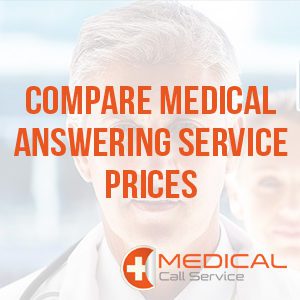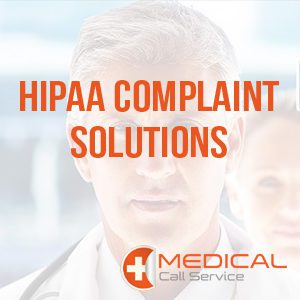
Medical Answering Services 101: Addressing Your Top Questions and Concerns
In the fast-paced world of healthcare, every interaction with patients counts. Whether it’s scheduling an appointment, providing critical information, or managing after-hours calls, how you handle communication can significantly impact your practice’s success. Medical answering services are a crucial tool for healthcare providers, helping them manage patient communication efficiently and professionally. But what exactly are these services, and how can they benefit your practice? In this comprehensive guide, we’ll address the top questions and concerns about medical answering services, so you can make an informed decision about whether they’re right for you.
What Are Medical Answering Services?
Medical answering services are specialized communication solutions designed specifically for healthcare providers. These services handle incoming calls from patients and other stakeholders, ensuring that every call is answered promptly and professionally. Unlike general answering services, medical answering services are tailored to the unique needs of healthcare practices, with staff trained in medical terminology, HIPAA compliance, and the specific protocols of various medical fields.
How Do Medical Answering Services Work?
Medical answering services operate as an extension of your practice, answering calls on your behalf. Here’s a breakdown of how they typically work:
- Call Routing: Calls to your practice are routed to the answering service, either automatically after a certain number of rings or during specified times (such as after hours).
- Call Handling: Trained operators answer the calls using scripts and guidelines customized for your practice. They can schedule appointments, take messages, provide basic information, or escalate urgent issues according to your protocols.
- Message Delivery: After the call, the operator sends the message to the appropriate person or department within your practice via your preferred method—such as email, text, or direct entry into your electronic health record (EHR) system.
- After-Hours Service: For after-hours calls, operators can differentiate between routine inquiries and urgent matters, ensuring that on-call staff are only contacted when necessary.

What Are the Key Benefits of Using a Medical Answering Service?
The decision to use a medical answering service can bring several benefits to your practice. Here’s how:
Improved Patient Satisfaction
One of the primary benefits of a medical answering service is improved patient satisfaction. Patients appreciate being able to reach their healthcare provider at any time, especially in emergencies. By ensuring that calls are answered promptly and professionally, you enhance the patient experience, which can lead to better retention and positive word-of-mouth.
24/7 Availability
Medical issues don’t adhere to a 9-to-5 schedule, and neither should your communication. A medical answering service ensures that your practice is available to patients around the clock, providing peace of mind for both you and your patients. Whether it’s a late-night concern or a weekend emergency, patients know they can reach a live person who can assist them.
Reduced Administrative Burden
Handling phone calls can be time-consuming, especially for busy practices. A medical answering service takes this burden off your staff, allowing them to focus on more critical tasks like patient care and in-office responsibilities. This can lead to a more efficient practice and a better work-life balance for your team.
Cost Savings
While there is a cost associated with using a medical answering service, it can actually save your practice money in the long run. By reducing the need for additional administrative staff and minimizing missed appointments or after-hours emergencies, the service can be a cost-effective solution. Additionally, outsourcing call management can help you avoid the expenses associated with hiring and training in-house staff to handle calls.
HIPAA Compliance
Handling patient information over the phone comes with strict regulations under the Health Insurance Portability and Accountability Act (HIPAA). Medical answering services are trained in HIPAA compliance, ensuring that all patient information is handled securely and confidentially. This reduces the risk of costly compliance violations and protects your practice’s reputation.

What Services Do Medical Answering Services Typically Provide?
Medical answering services offer a range of services tailored to the needs of healthcare practices. Here are some of the most common:
1. Appointment Scheduling
Many medical answering services can handle appointment scheduling directly, either through integration with your practice management software or by coordinating with your office staff. This ensures that patients can book appointments even outside of regular office hours, reducing the risk of missed opportunities.
2. Message Taking and Delivery
At the core of any answering service is the ability to take and deliver messages accurately and promptly. Operators are trained to capture all necessary information and deliver it to the right person within your practice, whether that’s via email, text, or another method.
3. Emergency Call Handling
Medical answering services are equipped to handle emergency calls, determining whether the situation requires immediate attention and escalating the call to on-call staff as needed. This ensures that critical situations are addressed quickly while routine matters are handled appropriately.
4. Prescription Refill Requests
Some answering services can manage prescription refill requests, either by taking down the details and passing them on to the appropriate provider or by using pre-established protocols to process the request directly.
5. Patient Triage
In some cases, answering services can provide basic triage services, assessing the urgency of a patient’s condition based on the information provided during the call. This helps ensure that urgent cases are prioritized appropriately.

How Do Medical Answering Services Ensure Quality and Accuracy?
Given the critical nature of healthcare communication, accuracy and quality are paramount. Here’s how medical answering services maintain high standards:
Trained Operators
Operators at medical answering services undergo extensive training in medical terminology, HIPAA compliance, and the specific needs of healthcare practices. This ensures they can accurately capture information and respond appropriately to various situations.
Customized Scripts
Each practice can provide customized scripts and protocols that operators follow when handling calls. This ensures consistency and accuracy in how calls are managed, reflecting your practice’s standards and procedures.
Quality Assurance Programs
Many medical answering services have quality assurance programs in place, including call monitoring and regular reviews. This allows them to continuously improve service quality and address any issues promptly.
Technology Integration
To reduce the risk of errors, many medical answering services integrate with your existing technology, such as practice management software or EHR systems. This allows for seamless communication and accurate data entry, minimizing the chances of mistakes.

What Are the Potential Drawbacks of Using a Medical Answering Service?
While medical answering services offer many benefits, it’s essential to consider potential drawbacks to make an informed decision:
Cost Considerations
While outsourcing your call management can save money in some areas, it’s still an expense that needs to be budgeted. Depending on the service and the volume of calls, costs can vary. It’s important to weigh these costs against the benefits to determine if it’s a worthwhile investment for your practice.
Loss of Personal Touch
Some practices worry that using an answering service might lead to a loss of the personal touch that in-house staff can provide. While medical answering services are trained to handle calls professionally, they may not have the same intimate knowledge of your patients and practice culture.
Dependence on Technology
Relying on an external service means you’re also dependent on their technology and infrastructure. If the answering service experiences technical issues, it could impact your communication with patients. It’s essential to choose a reputable provider with a strong track record of reliability.

How Do I Choose the Right Medical Answering Service for My Practice?
Choosing the right medical answering service is crucial to ensuring that your patients receive the best possible experience. Here are some tips to help you make the right choice:
Assess Your Practice’s Needs
Before you start looking for a service, assess your practice’s specific needs. Consider factors like call volume, the types of services you need (e.g., appointment scheduling, after-hours call handling), and your budget. Understanding your needs will help you find a service that’s a good fit.
Check for HIPAA Compliance
HIPAA compliance is non-negotiable when it comes to handling patient information. Ensure that any answering service you consider is fully compliant with HIPAA regulations and has robust security measures in place to protect patient data.
Look for Industry Experience
Choose a provider with experience in the healthcare industry. Medical answering services are not the same as general answering services—experience in the medical field ensures that the provider understands the unique challenges and requirements of your practice.
Request References and Reviews
Ask potential providers for references from other healthcare practices they’ve worked with. Online reviews and testimonials can also give you insight into the service’s reliability, quality, and customer satisfaction.
Evaluate Their Technology
The technology used by the answering service should integrate smoothly with your existing systems. Ask about their software, data security protocols, and how they handle integration with EHR and practice management systems.
Consider Their Availability
Ensure that the answering service offers the level of availability your practice needs. If you require 24/7 service, make sure they can provide it without any gaps in coverage.
Medical answering services can be a valuable asset to healthcare practices, offering numerous benefits such as improved patient satisfaction, reduced administrative burden, and enhanced after-hours availability. By understanding how these services work and what they can offer, you can make an informed decision about whether outsourcing your call management is the right choice for your practice.

Leave a Reply